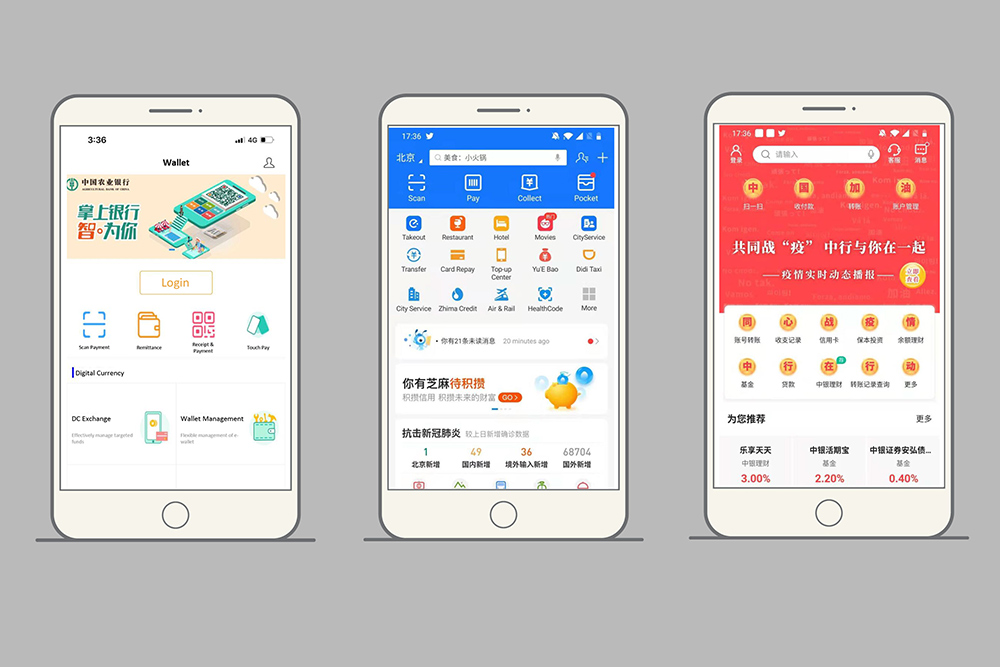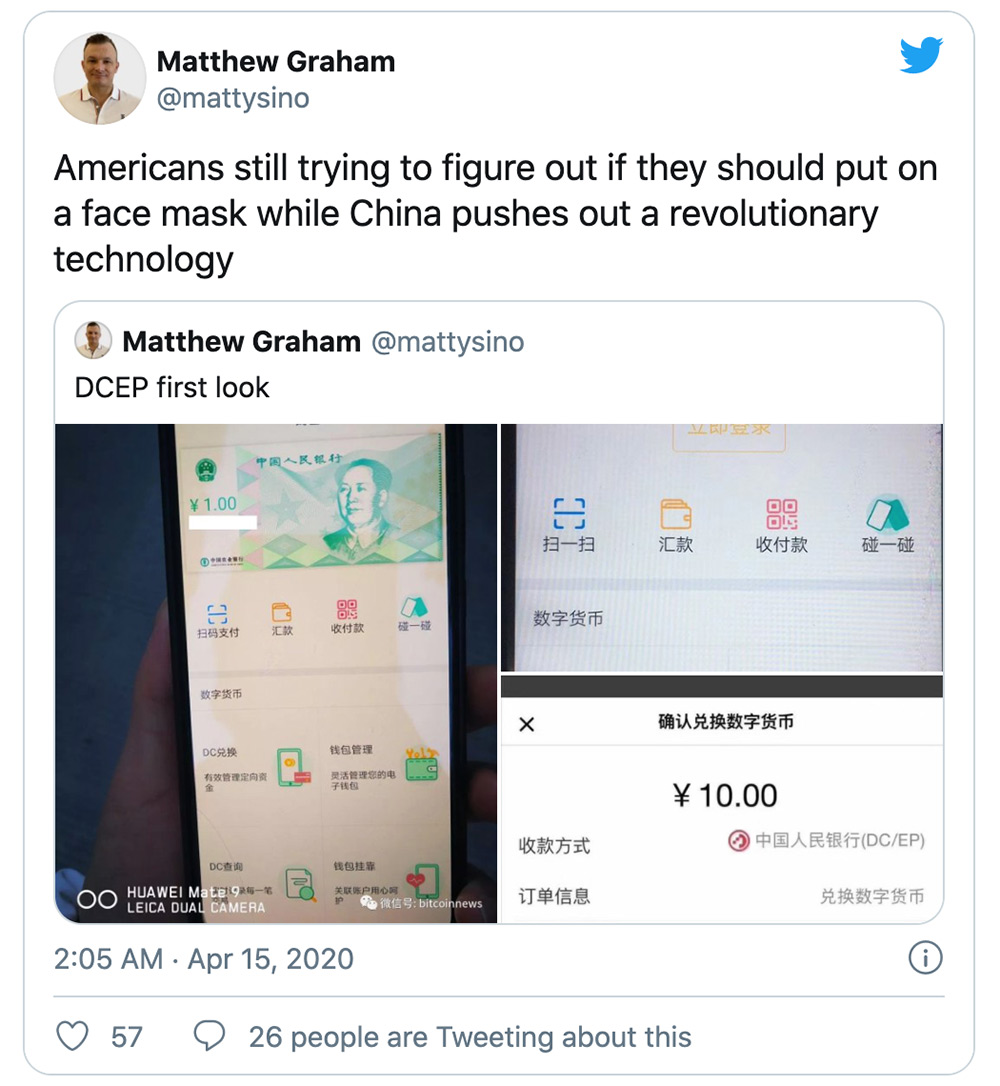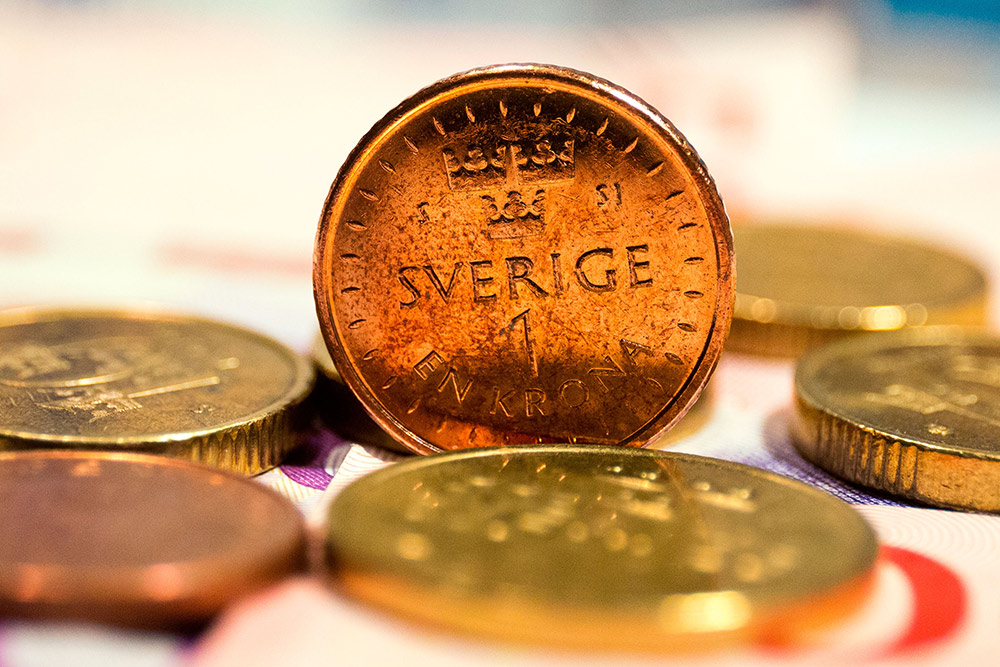在13世纪,元朝皇帝忽必烈凭借一纸诏书颠覆了当时的货币系统:要么接受我的纸币,要么就死。
当然,处决的威胁在当时并不是什么新鲜事。忽必烈真正的创新之处在于,他对货币本身进行了改造。这位令人闻风丧胆的成吉思汗之孙意识到,他能够不受贵金属供应的限制,为自己的国家制造货币,其地缘政治影响力也将不再依赖于在丝绸之路沿线劳神费力开采和冶炼的矿石。相反,他能够开发无限量的轻质原料,利用树木来制造货币。
准确地说,是桑树。在一份当代记述资料中,周游列国的威尼斯商人马可·波罗对“伟大的忽必烈用树皮做成类似纸的国家流通货币”表示无比惊叹。他写道,钞票的发行,带着“如同纯金或纯银般的庄严和权威感”。
马可·波罗的报告让中世纪的欧洲人看得瞠目结舌,但这位皇帝确实走在他所处时代的前列。如今,靠政府法令而非硬资产支持的法定货币已经成为了各地的标准货币,其前身就是忽必烈发行的交钞。
时间快进至本世纪,中国正在又一次重铸货币。但这一次,被抛弃却是纸币,因为中国正在走向数字化。虽然蒙古人的结局并不好——印钞形成了恶性通胀,让他们失去了王位——但中国现任领导人制订了更加稳健、长远的规划。
在开发国家数字货币方面,中国比任何大国都走得更远——这种单纯的数字人民币基于区块链技术开发,而区块链是比特币等加密货币的记录数据库。去年10月,习总书记在一次讲话中展现了对区块链的大力支持,也成为第一位支持这项技术的世界主要领导人。他表示要“抓住机遇”,希望中国在该领域“占据领先地位”。
这种未来货币的全称有点冗长,被称为“数字货币/电子支付”(DC/EP,以下简称数字货币),但这是朝数字方向迈出的激动人心的一步。中国政府旨在让目前处于内测阶段的货币做好准备,到2022年2月北京举办冬奥会时实现更广泛的应用——让中国能够在全球舞台彰显金融科技实力。

比特币或将重回高位!数字人民币的研发受到比特币的启发。近日,这种具高波动性的加密货币价格飙升。投资者应该感谢全球经济中弥漫的恐慌气氛——还有允许美国银行为消费者持有比特币的监管规定。来源:彭博社;截至美东时间8月3日下午4时
中国官员曾经在公开场合赞扬数字货币的诸多优点:运营和交易成本更低、金融包容性更强;同时对国家来说,可以增强打击犯罪的能力和扩大海外影响力。这项创新能加强对中国货币体系的管控。
有观察人士甚至认为,数字人民币或将预示着美元作为国际贸易通用货币的终结。对于那些认为中国的数字桑树将结硕果的西方人来说,这个可能性令人震惊——因为这将削弱美国维护经济和政治利益的能力。
国际清算银行在最近一项研究中调查了66家中央银行,其中80%的银行称已经开始研究数字货币的可行性,但只有10%付诸实际行动;美联储不在其中。
其结果就是:中国正在一场几乎无人意识已经开赛的竞赛中向前冲刺。
随意观察下苏州火车站——这是一个位于上海西北方向的运河水系城市——可能并不会觉得有何异样之处。车厢里满是佩戴口罩的乘客,人们在入站口排队向保安人员出示智能手机上的绿码,以此表明未感染新冠肺炎。
但有些乘客的手机里还有另一项功能:持有官方批准的数字货币。中国已经从5月起开始落地测试数字人民币,苏州市公务员收到了以数字货币形式发放的50%交通补贴,深圳、成都和北京附近的雄安新区也在进行类似的与本地商户有关的测试工作。

这些交易数额很小,却传递了一个重大的信息:当大多数国家还在因为新冠疫情而分心时,一场技术变革已经悄然在中国上演了。汉全咨询投资公司的首席执行官马修·格雷厄姆发在推特上的“测试版”数字钱包图片也表达了这一重要讯息。他评论道:“美国人仍然在试图搞清楚是否应该戴口罩,中国却已经在推动一项革命性技术了。”

自宣布试点计划以来,中国对此几乎未发表任何言论。中国的大型公司似乎也避谈数字货币。不过,各大公司正在饶有兴趣地关注着形势发展。据报道,网约车服务公司滴滴出行、外卖平台美团大众点评等国内龙头企业,还有麦当劳、赛百味等外资企业,都在为测试工作做准备。(滴滴已经确认参与该计划;美团拒绝置评;麦当劳和赛百味未回复置评请求。)
超过80%的中国人都在使用支付宝、微信支付等智能手机应用程序进行付款。表面来看,数字货币应用程序和那些随处可见的电子钱包似乎并无二致。但从技术角度讲,两种数字货币之间存在着巨大的区别。其中有一大关键性创新,即数字货币在任何地方都能使用,甚至各方处于“离线”状态时也是如此。但两者最大的分别在于,拥有借贷记录的所有方不同。有别于私营企业,数字人民币与央行中国人民银行所维护的中央分类账有内在联系。
其影响是多方面的。中国的这一策略有助于将2.25亿“无银行账户”人士纳入经济领域;只需一部智能手机就能实现,甚至不需要传统的银行账户。数字人民币钱包可以被用来发放刺激款项、补贴和退税。但最根本的是,数字货币将让政府对中国经济有无可比拟的监督和调控权。就像忽必烈时代的古老交钞一样,国家可能是最大受益方。
几年前,风投公司Race Capital的中国投资者杨珮珊在中国国家电视台看到一段关于区块链技术的影片,当时她觉得似乎缺了点什么。她回忆道,“影片试图用通俗易懂的语言向大众讲解什么是区块链”,但是,“‘去中心化’一词却未被提及”。这个说法是加密货币推行者的惯用语。杨珮珊当时感觉,那可能不是真的区块链。
2014年,当中国人民银行首次开始考虑数字货币时,比特币才刚刚进入主流意识。自由主义者喜爱这项技术,是因为可在监管之外完成价值创造和转移,但许多银行和国家也看到了区块链的分布式分类账技术中吸引人的潜力:以难以置信的精准度追踪金融活动。
中国担心资本外流可能会让人民币走弱,因此从2013年起就先发制人,禁止银行处理加密货币。但对于数字货币项目,领导层对区块链技术进行了研究和甄别——保留了该技术原本的透明性,但去掉了潜在风险。
与此同时,在快速崛起的中产阶级引领下,中国的金融科技行业正在腾飞。中国的移动支付应用交易量从2013年微不足道的金额,跃升至2019年的350万亿元人民币(约合50万亿美元)。如今,蚂蚁集团的支付宝、腾讯的微信支付分别占据了55%和39%的市场份额。手机已经取代了实体现金;中国家庭金融资产中的现金使用量占4%(美国为24%),是世界上比例最低的国家之一,金融科技应用程序的持有比例也越来越高。
中国人民银行认为,国有银行的存款外流数量庞大且速度惊人,正在演变成缺乏监管的双头垄断问题。中国人民银行行长易纲在去年一次会议上认为:“那些大型高科技公司带来了很多挑战和金融风险。在这个游戏中,赢家通吃。”因此,政府从2017年起要求支付宝和微信将客户备付金存入央行的不计息账户。中国人民银行还设立了一个网络支付清算平台,掌握大公司的资金流向。
通过数字货币,中国将获得更大的能见度,对系统中的流动资金进行监管。数字交易将不必经过清算平台,在后端分类账中就能全部看到。新加坡跨国银行星展银行高级经济学家内森·周解释说,中国可能会更密切地关注投资风险,或将有助于避免影响中国经济的周期性债务危机。比如,如果当局认为无法挽救某个如“鬼城”般的大型住房项目,国家财政的工程师就能通过调整数字人民币代码,限制投资者向该项目投入更多资金。内森·周说,数字人民币不是事后解决问题,而是让中国“提前掌控一切,预先部署”。
不过,也有人质疑和担心产生更隐蔽的问题。中国人民银行数字货币研究所所长穆长春承诺,数字货币将提供“可控制的匿名性”。数字货币让国家更有可能掌握金融活动的一举一动。通过数字人民币,中国可以监控犯罪嫌疑人和恐怖分子的交易。
但对于隐私的担忧,可能并不会阻止全球竞逐数字货币。
Facebook在2019年宣布Libra数字货币计划。Libra在初期受挫后缩减了项目规模,中国人民银行却加快了步伐。中国不仅仅只获得技术优势,数字人民币还表明这是一个挑战美元的全球储备货币地位的最佳机会。。
第二次世界大战以来,美元的全球储备货币地位让美国获利颇丰。出口商向美国出售的商品更便宜,放款人要求更低的利率,因为他们赚取的是全球保值货币。美国面临更小的汇率波动风险,同时还可对较小经济体的货币政策施加更大的影响力。
所有货币体系都会受到网络的影响——使用人数越多,获得的价值更大。在今天,人民币仅占全球外汇储备的2%,而美元占60%以上(欧元占20%)。但如果数字货币在某天达到临界规模,这很可能要归功于中国的“一带一路”全球贸易和基础设施倡议。
“一带一路”是中国在外交政策方面的重中之重,该倡议正在帮助中国构建从东南亚、埃及到厄瓜多尔的经济网络。如果中国能够吸引这些国家加入数字人民币生态系统,将可能有助于人民币成为制衡美元的强大力量。中国在这些国家中拥有相当大的影响力——不少国家向中国申请大量贷款,但中国也提供了诱人的条件。在发展中国家,交易费会让跨境贸易和借贷变得缓慢和昂贵。上海区块链项目公司Neo的首席执行官兼联合创始人达鸿飞表示,数字货币所需的中间机构更少,数字人民币有望“最大限度地减少交易滞后问题,同时降低准入门槛”。
即便数字货币没能撼动美元的全球储备地位,也有可能给美国带来麻烦。受益于美元的主导地位,美国成为了全球金融守门人:可以有效地决定和批准哪个国家使用SWIFT网络(全球银行结算系统),或将其列入黑名单。比如哈佛大学肯尼迪学院贝尔福科学与国际事务中心执行主任阿迪提·库马尔认为,这能让美国“回应俄罗斯特定寡头政治家的不良行径,实施非常有针对性的制裁”。
中国的数字货币将对这种权力造成威胁。香港投资公司Radian Partners的创始人朱晋郦指出:“数字货币的内置功能之一是绕过SWIFT,直接完成汇款。”更广泛地采用数字货币可能会降低美国惩罚对手和罪犯的能力,并给任何卷入美国政策争端的人士提供另一个交易场所。
去年12月,美国财政部部长史蒂文·姆努钦告知国会,他和美联储主席杰罗姆·鲍威尔认为,数字货币属于低优先级别问题。他说:“我们认为美联储在未来五年内没有必要发行数字货币。”新冠疫情重新引发了国会山对数字货币的兴趣——原因之一是华盛顿方面难以通过传统渠道迅速发放刺激资金福利,然而该项目进展仍然十分缓慢。
这种惰性可能反映出一种根深蒂固的怀疑态度,即不相信中国能超越美国。亨利·保尔森是前美国财政部部长,也是一家中美关系智囊机构的创始人。他在5月为《外交事务》(Foreign Affairs)撰写的一篇评论文章中表示,数字货币“不是一个严重的问题”。保尔森认为,中国的管治方式过于保守,这种货币无法获得广泛采用。
但有人认为,反对者没有看到更广阔的图景。“我认为,这类似于我们目前对于5G的辩论,美国一直在敦促盟国不要使用华为提供的5G技术。”库马尔说。虽然美国声称该公司构成风险,但消费者辩称,他们不能错过以低成本获得高质量技术的机会。
与此同时,中国正在抓住机遇,力争成为未来几十年里世界数字版图中不可或缺的一部分。红枣科技是一家获得国家支持的公司,致力于提供基于区块链的云服务。该公司首席执行官何亦凡将所有工作都比作是在“建设下一个互联网”。当然,当前的互联网要归功于五角大楼资助的研究。这在提醒着人们,对技术怀有雄心壮志的政府是能够以深刻的方式重塑经济史的。只要问问忽必烈就知道了。

数字货币竞争对手
从PayPal的Venmo到非洲的M-Pesa,私营企业一直主导着数字支付领域。而现在,各国央行正联合企业开发本国的数字货币,但没有哪一个国家的进度能赶上中国。
瑞典
瑞典中央银行是全世界历史最悠久的央行,自2016年以来就宣布要推出数字货币。目前,瑞典央行正与埃森哲咨询公司合作为数字克朗做技术研发,并计划于明年进行测试。
新加坡
新加坡金融管理局在今年7月称,他们与摩根大通和有政府背景的巨头淡马锡携手,“成功”完成了一项支持多货币结算的区块链网络测试。央行董事总经理表示,欢迎与中国合作。
巴哈马
巴哈马于2019年12月27日在埃克苏马地区启动了“沙币计划”试点项目,一个月内吸引了1000多名测试者。该国计划在年底前将试点区域扩展至全部700个岛屿。
委内瑞拉
2018年,委内瑞拉推出加密货币petro(据传有石油储备支持),旨在帮助公民应对国际制裁和本国失衡的恶性通胀问题。不过petro惨遭失败,美国正悬赏500万美元逮捕货币负责人,此人被控贩毒和违反制裁。(财富中文网)
本文另一版本刊载于《财富》杂志2020年8/9月刊,标题为《中国努力争取数字货币主导地位的内幕》。
译者:Emily
在13世纪,元朝皇帝忽必烈凭借一纸诏书颠覆了当时的货币系统:要么接受我的纸币,要么就死。
当然,处决的威胁在当时并不是什么新鲜事。忽必烈真正的创新之处在于,他对货币本身进行了改造。这位令人闻风丧胆的成吉思汗之孙意识到,他能够不受贵金属供应的限制,为自己的国家制造货币,其地缘政治影响力也将不再依赖于在丝绸之路沿线劳神费力开采和冶炼的矿石。相反,他能够开发无限量的轻质原料,利用树木来制造货币。
准确地说,是桑树。在一份当代记述资料中,周游列国的威尼斯商人马可·波罗对“伟大的忽必烈用树皮做成类似纸的国家流通货币”表示无比惊叹。他写道,钞票的发行,带着“如同纯金或纯银般的庄严和权威感”。
马可·波罗的报告让中世纪的欧洲人看得瞠目结舌,但这位皇帝确实走在他所处时代的前列。如今,靠政府法令而非硬资产支持的法定货币已经成为了各地的标准货币,其前身就是忽必烈发行的交钞。
时间快进至本世纪,中国正在又一次重铸货币。但这一次,被抛弃却是纸币,因为中国正在走向数字化。虽然蒙古人的结局并不好——印钞形成了恶性通胀,让他们失去了王位——但中国现任领导人制订了更加稳健、长远的规划。
在开发国家数字货币方面,中国比任何大国都走得更远——这种单纯的数字人民币基于区块链技术开发,而区块链是比特币等加密货币的记录数据库。去年10月,习总书记在一次讲话中展现了对区块链的大力支持,也成为第一位支持这项技术的世界主要领导人。他表示要“抓住机遇”,希望中国在该领域“占据领先地位”。
这种未来货币的全称有点冗长,被称为“数字货币/电子支付”(DC/EP,以下简称数字货币),但这是朝数字方向迈出的激动人心的一步。中国政府旨在让目前处于内测阶段的货币做好准备,到2022年2月北京举办冬奥会时实现更广泛的应用——让中国能够在全球舞台彰显金融科技实力。
中国官员曾经在公开场合赞扬数字货币的诸多优点:运营和交易成本更低、金融包容性更强;同时对国家来说,可以增强打击犯罪的能力和扩大海外影响力。这项创新能加强对中国货币体系的管控。
有观察人士甚至认为,数字人民币或将预示着美元作为国际贸易通用货币的终结。对于那些认为中国的数字桑树将结硕果的西方人来说,这个可能性令人震惊——因为这将削弱美国维护经济和政治利益的能力。
国际清算银行在最近一项研究中调查了66家中央银行,其中80%的银行称已经开始研究数字货币的可行性,但只有10%付诸实际行动;美联储不在其中。
其结果就是:中国正在一场几乎无人意识已经开赛的竞赛中向前冲刺。
随意观察下苏州火车站——这是一个位于上海西北方向的运河水系城市——可能并不会觉得有何异样之处。车厢里满是佩戴口罩的乘客,人们在入站口排队向保安人员出示智能手机上的绿码,以此表明未感染新冠肺炎。
但有些乘客的手机里还有另一项功能:持有官方批准的数字货币。中国已经从5月起开始落地测试数字人民币,苏州市公务员收到了以数字货币形式发放的50%交通补贴,深圳、成都和北京附近的雄安新区也在进行类似的与本地商户有关的测试工作。
这些交易数额很小,却传递了一个重大的信息:当大多数国家还在因为新冠疫情而分心时,一场技术变革已经悄然在中国上演了。汉全咨询投资公司的首席执行官马修·格雷厄姆发在推特上的“测试版”数字钱包图片也表达了这一重要讯息。他评论道:“美国人仍然在试图搞清楚是否应该戴口罩,中国却已经在推动一项革命性技术了。”
自宣布试点计划以来,中国对此几乎未发表任何言论。中国的大型公司似乎也避谈数字货币。不过,各大公司正在饶有兴趣地关注着形势发展。据报道,网约车服务公司滴滴出行、外卖平台美团大众点评等国内龙头企业,还有麦当劳、赛百味等外资企业,都在为测试工作做准备。(滴滴已经确认参与该计划;美团拒绝置评;麦当劳和赛百味未回复置评请求。)
超过80%的中国人都在使用支付宝、微信支付等智能手机应用程序进行付款。表面来看,数字货币应用程序和那些随处可见的电子钱包似乎并无二致。但从技术角度讲,两种数字货币之间存在着巨大的区别。其中有一大关键性创新,即数字货币在任何地方都能使用,甚至各方处于“离线”状态时也是如此。但两者最大的分别在于,拥有借贷记录的所有方不同。有别于私营企业,数字人民币与央行中国人民银行所维护的中央分类账有内在联系。
其影响是多方面的。中国的这一策略有助于将2.25亿“无银行账户”人士纳入经济领域;只需一部智能手机就能实现,甚至不需要传统的银行账户。数字人民币钱包可以被用来发放刺激款项、补贴和退税。但最根本的是,数字货币将让政府对中国经济有无可比拟的监督和调控权。就像忽必烈时代的古老交钞一样,国家可能是最大受益方。
几年前,风投公司Race Capital的中国投资者杨珮珊在中国国家电视台看到一段关于区块链技术的影片,当时她觉得似乎缺了点什么。她回忆道,“影片试图用通俗易懂的语言向大众讲解什么是区块链”,但是,“‘去中心化’一词却未被提及”。这个说法是加密货币推行者的惯用语。杨珮珊当时感觉,那可能不是真的区块链。
2014年,当中国人民银行首次开始考虑数字货币时,比特币才刚刚进入主流意识。自由主义者喜爱这项技术,是因为可在监管之外完成价值创造和转移,但许多银行和国家也看到了区块链的分布式分类账技术中吸引人的潜力:以难以置信的精准度追踪金融活动。
中国担心资本外流可能会让人民币走弱,因此从2013年起就先发制人,禁止银行处理加密货币。但对于数字货币项目,领导层对区块链技术进行了研究和甄别——保留了该技术原本的透明性,但去掉了潜在风险。
与此同时,在快速崛起的中产阶级引领下,中国的金融科技行业正在腾飞。中国的移动支付应用交易量从2013年微不足道的金额,跃升至2019年的350万亿元人民币(约合50万亿美元)。如今,蚂蚁集团的支付宝、腾讯的微信支付分别占据了55%和39%的市场份额。手机已经取代了实体现金;中国家庭金融资产中的现金使用量占4%(美国为24%),是世界上比例最低的国家之一,金融科技应用程序的持有比例也越来越高。
中国人民银行认为,国有银行的存款外流数量庞大且速度惊人,正在演变成缺乏监管的双头垄断问题。中国人民银行行长易纲在去年一次会议上认为:“那些大型高科技公司带来了很多挑战和金融风险。在这个游戏中,赢家通吃。”因此,政府从2017年起要求支付宝和微信将客户备付金存入央行的不计息账户。中国人民银行还设立了一个网络支付清算平台,掌握大公司的资金流向。
通过数字货币,中国将获得更大的能见度,对系统中的流动资金进行监管。数字交易将不必经过清算平台,在后端分类账中就能全部看到。新加坡跨国银行星展银行高级经济学家内森·周解释说,中国可能会更密切地关注投资风险,或将有助于避免影响中国经济的周期性债务危机。比如,如果当局认为无法挽救某个如“鬼城”般的大型住房项目,国家财政的工程师就能通过调整数字人民币代码,限制投资者向该项目投入更多资金。内森·周说,数字人民币不是事后解决问题,而是让中国“提前掌控一切,预先部署”。
不过,也有人质疑和担心产生更隐蔽的问题。中国人民银行数字货币研究所所长穆长春承诺,数字货币将提供“可控制的匿名性”。数字货币让国家更有可能掌握金融活动的一举一动。通过数字人民币,中国可以监控犯罪嫌疑人和恐怖分子的交易。
但对于隐私的担忧,可能并不会阻止全球竞逐数字货币。
Facebook在2019年宣布Libra数字货币计划。Libra在初期受挫后缩减了项目规模,中国人民银行却加快了步伐。中国不仅仅只获得技术优势,数字人民币还表明这是一个挑战美元的全球储备货币地位的最佳机会。。
第二次世界大战以来,美元的全球储备货币地位让美国获利颇丰。出口商向美国出售的商品更便宜,放款人要求更低的利率,因为他们赚取的是全球保值货币。美国面临更小的汇率波动风险,同时还可对较小经济体的货币政策施加更大的影响力。
所有货币体系都会受到网络的影响——使用人数越多,获得的价值更大。在今天,人民币仅占全球外汇储备的2%,而美元占60%以上(欧元占20%)。但如果数字货币在某天达到临界规模,这很可能要归功于中国的“一带一路”全球贸易和基础设施倡议。
“一带一路”是中国在外交政策方面的重中之重,该倡议正在帮助中国构建从东南亚、埃及到厄瓜多尔的经济网络。如果中国能够吸引这些国家加入数字人民币生态系统,将可能有助于人民币成为制衡美元的强大力量。中国在这些国家中拥有相当大的影响力——不少国家向中国申请大量贷款,但中国也提供了诱人的条件。在发展中国家,交易费会让跨境贸易和借贷变得缓慢和昂贵。上海区块链项目公司Neo的首席执行官兼联合创始人达鸿飞表示,数字货币所需的中间机构更少,数字人民币有望“最大限度地减少交易滞后问题,同时降低准入门槛”。
即便数字货币没能撼动美元的全球储备地位,也有可能给美国带来麻烦。受益于美元的主导地位,美国成为了全球金融守门人:可以有效地决定和批准哪个国家使用SWIFT网络(全球银行结算系统),或将其列入黑名单。比如哈佛大学肯尼迪学院贝尔福科学与国际事务中心执行主任阿迪提·库马尔认为,这能让美国“回应俄罗斯特定寡头政治家的不良行径,实施非常有针对性的制裁”。
中国的数字货币将对这种权力造成威胁。香港投资公司Radian Partners的创始人朱晋郦指出:“数字货币的内置功能之一是绕过SWIFT,直接完成汇款。”更广泛地采用数字货币可能会降低美国惩罚对手和罪犯的能力,并给任何卷入美国政策争端的人士提供另一个交易场所。
去年12月,美国财政部部长史蒂文·姆努钦告知国会,他和美联储主席杰罗姆·鲍威尔认为,数字货币属于低优先级别问题。他说:“我们认为美联储在未来五年内没有必要发行数字货币。”新冠疫情重新引发了国会山对数字货币的兴趣——原因之一是华盛顿方面难以通过传统渠道迅速发放刺激资金福利,然而该项目进展仍然十分缓慢。
这种惰性可能反映出一种根深蒂固的怀疑态度,即不相信中国能超越美国。亨利·保尔森是前美国财政部部长,也是一家中美关系智囊机构的创始人。他在5月为《外交事务》(Foreign Affairs)撰写的一篇评论文章中表示,数字货币“不是一个严重的问题”。保尔森认为,中国的管治方式过于保守,这种货币无法获得广泛采用。
但有人认为,反对者没有看到更广阔的图景。“我认为,这类似于我们目前对于5G的辩论,美国一直在敦促盟国不要使用华为提供的5G技术。”库马尔说。虽然美国声称该公司构成风险,但消费者辩称,他们不能错过以低成本获得高质量技术的机会。
与此同时,中国正在抓住机遇,力争成为未来几十年里世界数字版图中不可或缺的一部分。红枣科技是一家获得国家支持的公司,致力于提供基于区块链的云服务。该公司首席执行官何亦凡将所有工作都比作是在“建设下一个互联网”。当然,当前的互联网要归功于五角大楼资助的研究。这在提醒着人们,对技术怀有雄心壮志的政府是能够以深刻的方式重塑经济史的。只要问问忽必烈就知道了。
瑞典克朗
数字货币竞争对手
从PayPal的Venmo到非洲的M-Pesa,私营企业一直主导着数字支付领域。而现在,各国央行正联合企业开发本国的数字货币,但没有哪一个国家的进度能赶上中国。
瑞典
瑞典中央银行是全世界历史最悠久的央行,自2016年以来就宣布要推出数字货币。目前,瑞典央行正与埃森哲咨询公司合作为数字克朗做技术研发,并计划于明年进行测试。
新加坡
新加坡金融管理局在今年7月称,他们与摩根大通和有政府背景的巨头淡马锡携手,“成功”完成了一项支持多货币结算的区块链网络测试。央行董事总经理表示,欢迎与中国合作。
巴哈马
巴哈马于2019年12月27日在埃克苏马地区启动了“沙币计划”试点项目,一个月内吸引了1000多名测试者。该国计划在年底前将试点区域扩展至全部700个岛屿。
委内瑞拉
2018年,委内瑞拉推出加密货币petro(据传有石油储备支持),旨在帮助公民应对国际制裁和本国失衡的恶性通胀问题。不过petro惨遭失败,美国正悬赏500万美元逮捕货币负责人,此人被控贩毒和违反制裁。(财富中文网)
本文另一版本刊载于《财富》杂志2020年8/9月刊,标题为《中国努力争取数字货币主导地位的内幕》。
译者:Emily
In the 13th century, Kublai Khan, the Mongolian emperor who founded China’s Yuan Dynasty, upended monetary convention with a magisterial edict: Accept my money, or die.
The threat of execution was not so novel back then, of course. The Khan’s true innovation lay in his refashioning of money itself. The grandson of fearsome Genghis realized he could finance his realm untethered to finite supplies of precious metals. No longer would his geopolitical reach depend on backbreakingly mined and smelted ores hauled along the Silk Road. Instead, he could tap a boundless, lightweight resource—and make money grow on trees.
Mulberry trees, to be exact. In a contemporary account, Marco Polo, the wandering merchant of Venice, marveled at “how the great Khan causeth the bark of trees, made into something like paper, to pass for money overall his country.” The banknotes were issued, he wrote, “with as much solemnity and authority as if they were of pure gold or silver.”
Medieval Europeans were dumbfounded by Polo’s report. But the emperor was ahead of his time. Fiat currencies—descendants of Kublai Khan’s chao, backed by government edict rather than hard assets—are standard everywhere today.
Fast-forward to this century, and China once again is remaking money. Except this time, it is paper currency that’s getting tossed; China is going digital. And while things didn’t end well for the Mongols—they printed themselves into hyperinflation, and lost the throne—China’s current leaders have something far more stable and enduring in mind.
China is further along than any other large country in its development of a national digital currency—in this case, a purely electronic yuan based on technology inspired by blockchains, the record-keeping databases that underlie cryptocurrencies like Bitcoin. President Xi Jinping issued a ringing endorsement of blockchains in an October speech, making him the first major world leader to get behind the technology. Xi vowed to “seize the opportunity” that would let China “take the leading position” in the field.
The futuristic money, clunkily dubbed the “digital currency/electronic payment,” or DC/EP, is a dramatic step in that direction. The government aims for the currency, now in a pilot phase, to be ready for broader rollout by the time Beijing hosts the Winter Olympics in February 2022—allowing China to demonstrate its fintech prowess on a global stage.
Chinese officials publicly tout the currency’s many benefits: lower operational and transaction costs; greater financial inclusion; and, for the state, enhanced crime-fighting capabilities and expanded influence abroad. The innovation is set to strengthen the government’s control of China’s monetary system, while restoring the government’s power over China’s tech giants, especially Tencent’s WeChat and Alipay, run by Alibaba’s IPO-bound Ant Group division.
Some observers even believe the e-yuan could spell the beginning of the end for the U.S. dollar as the de facto conduit of international commerce. For Westerners who think China’s digital mulberry tree will bear fruit, that’s a startling possibility—one that would diminish America’s ability to defend its economic and political interests.
Out of 66 central banks surveyed in a recent study by the Bank for International Settlements, 80% reported having begun investigating the feasibility of a digital currency. But only 10% were anywhere close to minting one; the Federal Reserve is not among them.
The upshot: China is sprinting ahead in a race that few others realize they’re running.
****
A casual observer visiting a railway station in Suzhou, a canal-sluiced city northwest of Shanghai, might notice nothing out of the ordinary. Train cars are thronged with masked passengers. At entryways, commuters queue up and show guards their green-colored smartphone codes, indicating bills of good health for COVID-19.
But some passengers have another feature on their phones: an officially approved digital currency. China began testing an e-yuan in the real world in May, as municipal workers in Suzhou started receiving half their monthly transit subsidy in the form of DC/EP. Similar trials, some involving local merchants, are taking place in Shenzhen, Chengdu, and Xiong’an, near Beijing.
The transactions are small, but they send a big message: While most countries were distracted by a pandemic, China staged a technological coup. Matthew Graham, CEO of investment firm Sino Global Capital, conveyed the significance after posting leaked images of “beta” DC/EP wallets on Twitter. “Americans [are] still trying to figure out if they should put on a face mask while China pushes out a revolutionary technology,” he commented.
Beijing has said little about the pilot program since announcing it. Big companies operating in China have been reluctant to talk about DC/EP. But they’re watching the situation with interest, and homegrown stars such as ride-hailing service Didi Chuxing and food deliverer Meituan-Dianping, along with foreigners McDonald’s and Subway, have been reported to be preparing for the trials. (Didi confirmed its participation; Meituan declined to comment; McDonald’s and Subway did not reply to requests for comment.)
More than 80% of Chinese people already use smartphone apps like Alipay and WeChat Pay to conduct payments. Cosmetically, DC/EP apps resemble those omnipresent e-wallets. Yet technologically, there’s a wide divide between the two types of digital money. The DC/EP, in one key innovation, will be usable everywhere, even among parties who are otherwise “offline.” But the biggest difference lies in who logs the debits and credits. Unlike its private-sector counterparts, the e-yuan is intrinsically linked to a centralized ledger maintained by the People’s Bank of China (PBOC), the nation’s central bank.
The ramifications are manifold. China’s gambit could help bring 225 million “unbanked” people into its economic fold; all they’ll need is a smartphone, not even a traditional bank account. E-yuan wallets could be used to distribute stimulus payments, subsidies, and tax refunds. But most fundamentally, the digital money will grant the government unparalleled oversight and fine-tuned control of China’s economy. As with the Khan’s ancient cash, the biggest benefits are likely to accrue to the state.
****
When Edith Yeung, a Chinese national and investor at VC firm Race Capital, caught a Chinese state television segment on blockchain technology a couple of years ago, something seemed off. “It tried to teach the masses in layman’s terms what blockchain was all about,” she recalls. But “the word ‘decentralization’ ”—the mantra of cryptocurrency boosters—“was not mentioned at all,” she says. That’s not really blockchain, Yeung remembers thinking.
When the PBOC first started considering a digital currency, in 2014, Bitcoin was just breaking into the mainstream consciousness. Libertarians loved how it permitted the creation and transfer of value, independent of government. But many banks and states saw in the blockchain’s distributed ledger technology something equally attractive: the potential to track financial activity with incredible precision.
China, ever wary of capital outflows that could weaken its currency, preemptively barred banks from handling cryptocurrencies starting in 2013. But the country’s leadership studied and cherry-picked aspects of blockchain technology for the DC/EP project—keeping its innate transparency, while scrapping its potential dangers.
Meanwhile, China’s fintech sector, lofted by a fast-rising middle class, was taking off. Transaction volume on mobile payment apps in China rose from a negligible amount in 2013 to as much as 350 trillion renminbi, or $50 trillion, in 2019. Today, Ant Group’s Alipay and Tencent’s WeChat Pay command 55% and 39%, respectively, of that market. Phones displaced physical cash; China’s ratio of cash use to household financial assets, an increasing share of which is held in fintech apps, is among the lowest in the world, at 4%. (In the U.S., it’s 24%.)
The PBOC viewed this flight of deposits from state-controlled banks into a rising, under-regulated duopoly as too much, too fast. “Those big tech companies bring to us a lot of challenges and financial risks,” Yi Gang, governor of the PBOC, explained at a conference last year. “In this game, winners take all.” So, in 2017, the government started requiring Alipay and WeChat to store customer funds in non-interest-bearing accounts at the central bank. The PBOC also set up a clearinghouse for online payments, a checkpoint allowing it to scrutinize the giants’ money flows.
With an e-currency, China will gain even greater visibility into, and command over, the money sloshing around the system. Digital transactions won’t have to be routed through a checkpoint; transparency will be inherent in the all-seeing, back-end ledger. That could also enable the country to keep closer tabs on investment risks, potentially helping avert the debt crises that periodically disrupt China’s economy, explains Nathan Chow, senior economist at DBS Holdings, a Singapore-based multinational bank. Say authorities deem a “ghost town” mega–housing project to be unsalvageable: The nation’s fiscal engineers could restrict—literally, by tweaking e-yuan code—investors from plowing more money into it. Rather than address problems after the fact, an e-yuan will let China “have everything under control in advance, preprogrammed,” says Chow.
But skeptics fear more insidious outcomes. Mu Changchun, head of the PBOC’s digital currency research institute, has promised the DC/EP will offer “controllable anonymity.” More likely, the digital currency will grant the state financial omniscience. With an e-yuan, China will be able to monitor the transactions of suspected criminals and terrorists.
But privacy concerns may not stop DC/EP from attracting a global following.
****
Facebook announced its plans for Libra in 2019. Libra has since scaled back its ambitions after early stumbles, while the PBOC has accelerated its timeline. And China stands to gain more than just a technological edge: The e-yuan represents its best chance yet to challenge the dollar as the global reserve currency.
The U.S. has benefited enormously from the greenback’s status as the global reserve currency since World War II. Exporters sell to the U.S. more cheaply, and lenders ask for lower interest rates, because they get paid in a globally prized currency. The U.S. also faces less risk from fluctuating exchange rates and wields greater sway over lesser economies’ monetary policies.
All money systems are subject to network effects—gaining greater value as more people use them. Today, the renminbi makes up only 2% of global foreign-exchange reserves, while the U.S. dollar accounts for more than 60% (and the euro 20%). But if the DC/EP ever attains critical mass, it will likely be thanks to China’s “Belt and Road” global trade and infrastructure initiatives.
Belt and Road, the centerpiece of China’s foreign policy, is helping China cinch together a network of economy from Southeast Asia to Egypt to Ecuador. If China can lure those countries into the e-yuan ecosystem, that could help the currency become a serious counterweight to the dollar. China has considerable leverage over these nations—many have borrowed heavily from Beijing. But China also has enticements to offer. Transaction fees can make cross-border trade and borrowing slow and costly in developing nations. Because digital currencies require fewer intermediaries, an e-yuan could “minimize transaction lag while lowering barriers to entry,” says Da Hongfei, CEO and cofounder of Neo, a Shanghai-based blockchain project.
The DC/EP could cause problems for the U.S. even without attaining global-reserve status. Thanks to the dollar’s dominance, the U.S. is a global financial gatekeeper: It can effectively decide who is approved for or blacklisted from using the SWIFT network, the international bank money-wiring system. That enables the U.S., for example, to “inflict very targeted sanctions on specific Russian oligarchs in response to bad behavior,” says Aditi Kumar, executive director of the Belfer Center for Science and International Affairs at Harvard Kennedy School.
A Chinese digital currency threatens that power. “One of the built-in functions for DC/EP is direct remittance, which would bypass SWIFT,” notes Jennifer Zhu Scott, founder of investment firm Radian Partners in Hong Kong. Wider adoption of DC/EP could reduce America’s ability to punish adversaries and criminals—and give anyone embroiled in a policy dispute with the U.S. an alternative place to do business.
****
Last December, Treasury Secretary Steven Mnuchin told Congress that he and Fed Chairman Jerome Powell considered digital currency a low-priority issue. “In the next five years, we see no need for the Fed to issue a digital currency,” Mnuchin said. The pandemic has revived interest on Capitol Hill—in part because Washington has struggled to issue stimulus benefits quickly through traditional channels—but progress remains slow.
The inertia may reflect a deep-seated disbelief that China can overtake America. Hank Paulson, former secretary of the Treasury and founder of a think tank focused on U.S.-China relations, regards DC/EP as “not a serious concern,” as he wrote in an op-ed for Foreign Affairs in May. Beijing’s approach to governance is too illiberal for its currency to win widespread adoption, Paulson argued.
But others believe the naysayers miss the bigger picture. “I think of it as analogous to the debate we’re having about 5G,” Kumar says. “The U.S. has had a tough time urging allies not to use the 5G tech Huawei is providing,” she says, referring to the controversial Chinese telecom giant. While the U.S. alleges that the company poses espionage risks, customers argue that they can’t pass up a chance to get high-quality tech at low cost.
China’s government, meanwhile, is seizing the chance to become an integral part of the world’s digital fabric for decades to come. Yifan He, CEO of Red Date Technology, a state-supported company that aims to offer blockchain-based cloud services, likens all this work to “building the next Internet.” The current Internet, of course, owes its existence to Pentagon-funded research. It’s a reminder that technologically ambitious governments can reshape economic history in profound ways. Just ask Kublai Khan.
****
Currency contestants
From PayPal’s Venmo to M-Pesa in Africa, the private sector has dominated digital payments. Now central banks are exploring national digital currencies of their own, often with corporate partners—though none has progressed as far as China.
Sweden
Sweden’s Riksbank, the world’s oldest central bank, has talked about launching a digital currency since 2016. It’s now working with consulting firm Accenture to develop the technology behind an e-krona that it plans to test next year.
Singapore
In July, the Monetary Authority of Singapore said it “successfully” concluded a trial with JPMorgan Chase and state-backed giant Temasek that settled payments in different currencies on a blockchain-based network. The bank’s managing director has said he would welcome cooperation with China.
The Bahamas
The Bahamas started its “project sand dollar” pilot in its Exuma district on Dec. 27, 2019. The trial attracted more than 1,000 testers in a month, and the nation plans to expand the program across all 700 of its islands before year’s end.
Venezuela
In 2018, Venezuela launched the petro, a cryptocurrency (allegedly backed by oil reserves) designed to help citizens cope with international sanctions and the dysfunctional nation’s hyperinflation. The petro has been a flop, and the U.S. is offering a $5 million bounty for information leading to the capture of the initiative’s leader, who has been indicted for drug trafficking and sanctions violations.
A version of this article appears in the August/September 2020 issue of Fortune with the headline “China’s drive for digital currency dominance.”






